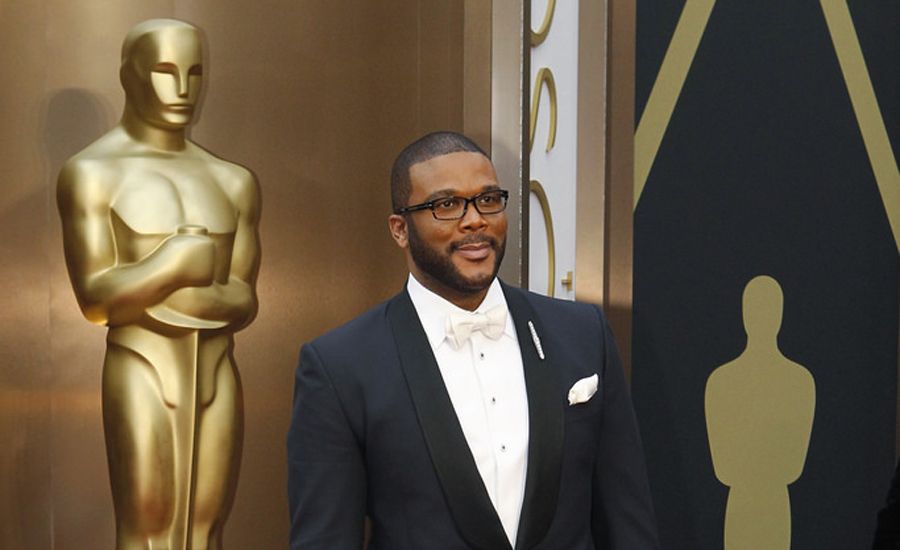Tyler Perry was ready to give up on his dream. For years, he had poured his passion and money into performances of his first play, I Know I’ve Been Changed, always hoping that this would be the one that drew a crowd.
But “every time I would go out to do the show, it would fail,” says Perry, 39, the now highly successful author, director, producer and actor.
“I would go to my boss and say, ‘I need time off to do the show.’ And they’d say no. I’d go to my desk, I’d sit and I’d pray. God would say, ‘Leave. Quit.’ I’d hear the voice as clear as day. I would leave, do the shows, and they would not work. I’d pray again: ‘God, where are you? You told me to leave.’ And I wouldn’t hear a thing.”
But he stuck with the play because he knew he was on to something. “The work was about adult survivors of child abuse and how one character confronted their abuser and went on to have a better life,” says Perry.
As a child, he himself had endured years of physical and emotional abuse by his father, who was prone to violent outbursts, especially when he drank. But unlike his onstage character, Perry had not yet confronted his own abuser. The message of being changed by forgiveness was there, but the play failed because the man reciting the lines had not yet felt it himself.
It took a few years for him to get there. Back in 1992, Perry saw an episode of The Oprah Winfrey Show in which she recommended writing as a form of healing. At that point in his life, he had never written about his abuse but decided to give it a try.
He wrote a series of letters—using “different characters’ names, because if anyone found it, I didn’t want them to know it was me.” Those letters eventually became I Know I’ve Been Changed. For the next six years, he performed the play, but it didn’t become a success until after he—like his character—confronted his abuser.
In 1998 “I had an argument with my father,” explains Perry, “I was screaming and yelling and using every four-letter word in the book; I was 28 years old and as profane as I could be. But I got an opportunity to have my catharsis on the phone.
“After it was over, I was empty, and I went on this journey to find out what was ripped away. And of course any journey for me is going to begin with faith, begin with God. I didn’t pray immediately, because I was angry with God, angry with everybody. But remembering everything I had learned in church really helped me to get through that anger.
“No matter how far I would stray, no matter what the sin, I would always come back because He would never let me get too far. There would always be something that would happen that would make me pray.”
When Perry went onstage for that last-gasp production, something profound had changed. “I had accepted the words I had written; I had forgiven my father. The show wasn’t hypocritical anymore. It was coming from a very real place. And it started to resonate with people on a different level.”
Perry had discovered that forgiveness “wasn’t for the other person; it belonged to me, it freed me. So many people remain bitter all of their lives. You have to tell yourself, ‘I need to forgive this person for me, so that I can go on. Not for them.’ “
From that moment on, his life—like his show—was Changed. Crowds started showing up to see his performances.
It led to another play and then another, each one expanding his fan base; he developed his signature character, the gun-toting, sharp-tongued, so-bad-she’s-good Madea (whose name comes from a common Southern conflation of “mother dear”), and went on to produce hit movies, television series and a best-selling book.
But that doesn’t mean his road was an easy one; he had held on to his anger toward his father for so long that reconciling with him was “scary,” says Perry.
“If the energy in being angry at a person is your fuel source, you’re afraid to give it up. But once you give it up, it’s like having a car that used to run on unleaded fuel and you switch to diesel; if God is diesel and the anger was your unleaded fuel, you have to learn to reprogram everything in the car to work off that diesel.”
Most everyone finds God by the end of Perry’s plays, with one notable exception. “Madea is a necessary tool to draw people in to hear from the righteous,” says Perry. “That’s what I think of her. She should never be saved. If she was, that wouldn’t show the differences in us.”
For Perry, being an entertainment power player gives him an opportunity to share his message of forgiveness and faith to the world.
“So many people use their films for self-gratification, but for me it’s about uplifting and inspiring people,” says Perry. “It’s been that faith in God, that belief in Christ that has helped me through the toughest times in my life.”






